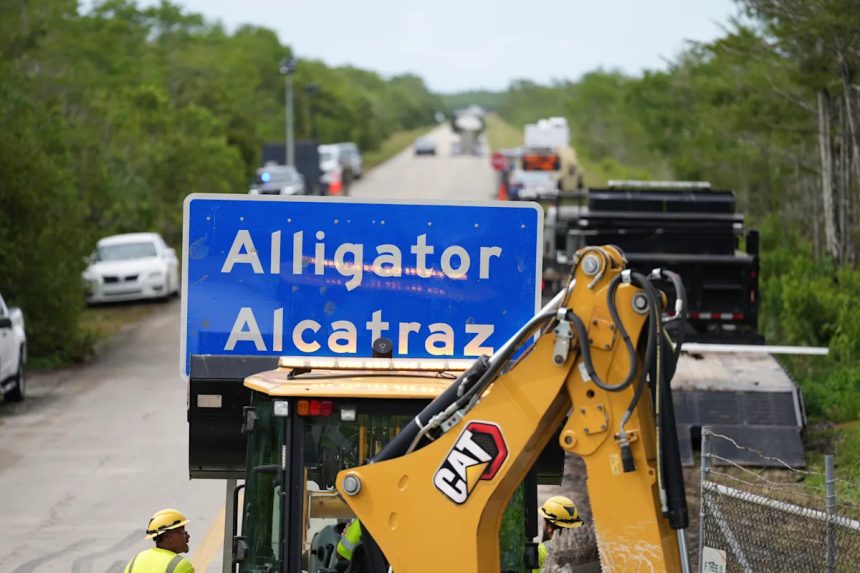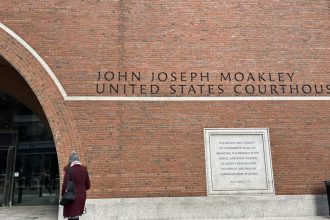MIAMI — A federal court in Florida has ruled that Florida can’t bring any additional people to the detention center in the Everglades dubbed “Alligator Alcatraz.”
U.S. District Judge Kathleen Williams ruled Thursday in a case that challenged the facility’s operation on environmental grounds that the state must also stop construction at the facility and, within 60 days, remove fencing, lighting,and generators.
Florida’s top emergency management official, Kevin Guthrie, quickly appealed the ruling.
Authorities have not disclosed the number of people held at the detention facility in the vast wetlands west of Miami.
Florida Gov. Ron DeSantis opened it in July and said it would eventually hold up to 4,000 people facing deportation under President Donald Trump’s immigration crackdown.
Williams noted that the detention center was intended to be a short-term stopover for people facing deportation and that her ruling would result in a steady population decline through attrition.
The ruling by Williams, an appointee of President Barack Obama, would make it impossible to operate. Her ruling follows an order she issued two weeks ago to halt construction in response to the suit brought by Friends of the Everglades, the Center for Biological Diversity and the Miccosukee Tribe.
Their suit argued that state and federal officials failed to follow the National Environmental Policy Act, which requires the federal government to conduct a review of the environmental effects of a project, to collect public comment and consider alternatives.
The environmental groups said the detention facility posed a threat to endangered species, including the Florida panther, while the Miccosukee Tribe said the project posed a threat to their ability to hunt, fish and gather plants in that part of the Everglades.
The state and federal government argued in response that they could bypass NEPA’s requirements because the operation was run by the state, not the federal government.
The airstrip is located at what had previously been called the Dade-Collier Training and Transition Airport. The state and federal government argued the area saw roughly 150 flights daily in the six months before the construction without any objection from environmental or tribal groups.
The state also cast illegal immigration as an emergency and warned that crime committed by people in the country without legal status amounted to a threat to public safety.
“Alligator Alcatraz” is facing several additional lawsuits, including one that alleges detainees have not been given adequate access to their attorneys. A federal judge moved that case to Florida’s central district this week, which could delay a decision on the matter.








